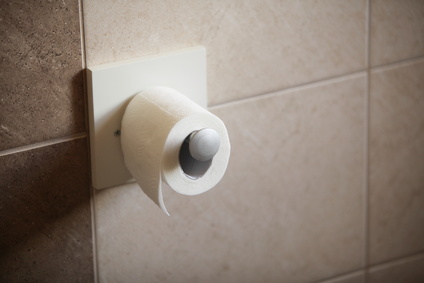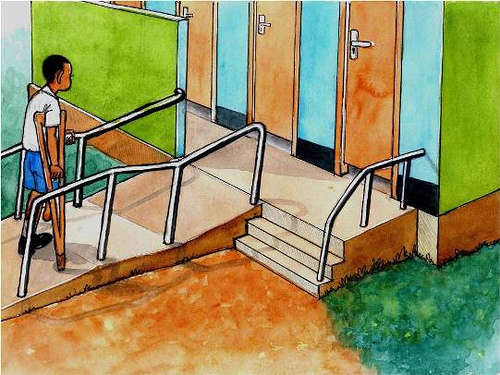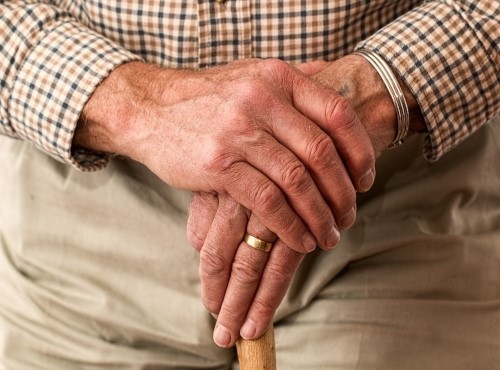
Even though we all try to keep our costs to a minimum, sometimes we have to spend something now to ensure our “health on a budget” for the future. One such dollar outlay could be for a squatty potty!
The modern Western style toilet was first introduced in the nineteenth century but it changed the way we were doing something every day in a very natural way to an unnatural way. In effect, we changed from squatting to sitting.
But our bodies were made to squat and not to sit
You might have noticed for example that young children (whatever their culture) instinctively squat to relieve themselves. Meanwhile and as a result of all these years of sitting instead of squatting have led to a less healthy Western world.
There are many conditions that studies have shown to have been caused as a direct result of sitting instead of squatting. These include appendicitis, colon disorders, inflammatory bowel disease, hernias, diverticulosis and even hemorrhoids and anal fissures.
On the subject of hemorrhoids, what are they?
Hemorrhoids are also known as “piles” because of their appearance. Unpleasant and painful as they worsen, hemorrhoids should be treated as soon as they appear.
If you are unsure whether you have hemorrhoids, and especially if there is bleeding, you should get a positive diagnosis from your medical practitioner.
In the case of a clot forming in an external hemorrhoid, which can be extremely painful, your doctor would be able to carry out a simple and effective incision.
What are the symptoms of hemorrhoids?
- Bleeding (usually painless) when bright red blood may be noticed on the toilet paper.
- Itching, irritation, discomfort or pain in the anal area.
- Lumps protruding from, or swelling in, the anal region.
- A lump near the anus, that can sometimes be sensitive or painful while sometimes feces may leak.
How can you make it more comfortable for yourself?
- Bathing the affected area gently with warm water in a bath or sit in a bowl of warm water several times a day. Pat dry gently or even use a hairdryer on a low setting.
- Ice packs and cold compresses can be applied to help with the swelling. Take a mild pain reliever if necessary.
- In place of dry toilet paper, use fragrant-free baby wipes to gently clean. A coating of petroleum jelly to the anal area will soothe irritated tissue.
- Ensure softer and regular stools by eating plenty of fresh fruits and vegetables (including raw) and drinking lots of pure filtered water.
- Changing to a whole foods diet while ditching the processed foods and sodas will help reduce your weight too if obesity is a problem.
- Try not to strain or hold your breath when having a bowel movement as this creates pressure in the veins in the lower rectum. Always go as soon as you have the urge because the longer you wait, the drier the stools will be. As we have discussed earlier, change to squatting instead of the usual sitting on the toilet.
- Include exercise and physical activity in your daily routine. Sitting or standing still for long periods also puts pressure on the veins.
Are you still unconvinced about the benefits of squatting?
Here are the 7 main advantages
1. Makes having a bowel movement faster, easier and more complete. This helps prevent something you may have never heard of – “fecal stagnation” and a prime factor in colon cancer and more.
2. Securely seals the ileocecal valve which is between the colon and the small intestine. When sitting on the toilet in the conventional way, this valve is unsupported and often leaks during evacuation, contaminating the small intestine.
3. The pelvic floor is protected.
4. Protects the pelvic nerves that are responsible for prostate health, bladder control and even sexuality. Also protects the nerves of the prostate, bladder and uterus from becoming stretched and damaged. Relaxes the puborecatlis muscle. This muscle will normally choke the rectum in order to maintain continence.
5. Uses the thighs to support the colon and prevent straining. Straining is never a good thing – too much and it can cause hernias, diveticulosis and pelvic organ prolapse.
6. Provides a highly effective prevention for the pain and discomfort of hemorrhoids.
7. Women often suffer during pregnancy. Squatting instead of sitting for pregnant women can mean less pressure on the uterus when using the toilet while daily squatting helps prepare for a more natural delivery. Hemorrhoids are also a common complaint during pregnancy.
Experts are backing the current trend to squatting but how can YOU make it easier to squat?
The easiest way is to use a Squatty Potty which is especially designed for your comfort while naturally putting you in the perfect squatting position for quick, easy elimination. Available online, the design complements your bathroom while it can be conveniently stored under any toilet.
Of course there is a small cost involved but, as mentioned at the start of this post, spending upfront can lead to “health on a budget” in the future. Alternatively, you can use a small wooden stool to achieve a similar effect for little or no cost!






Be the first to comment